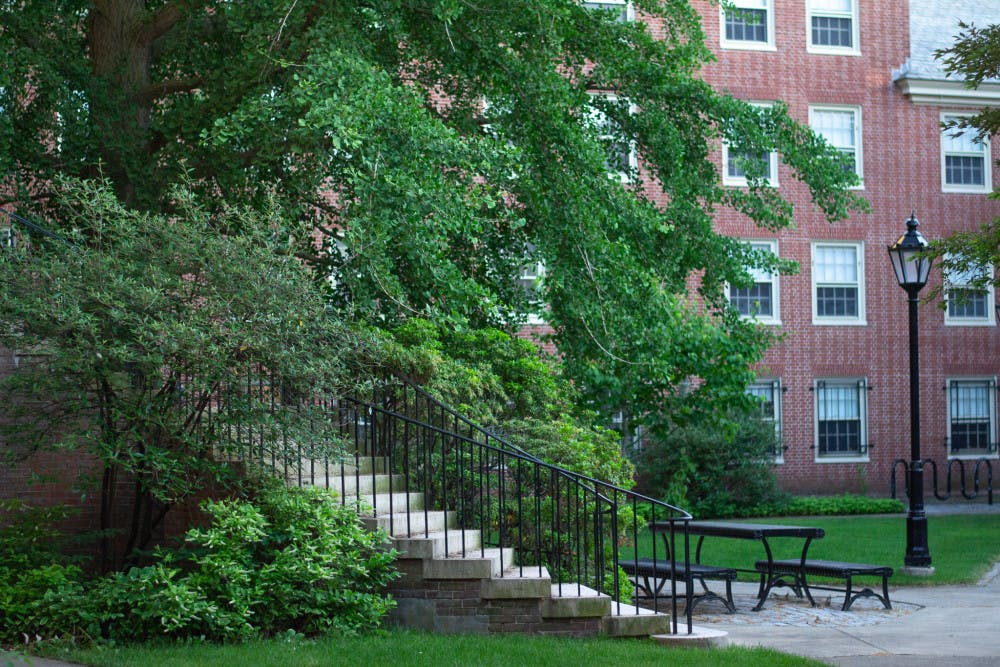The class of 2024 has to wait a little longer.
After an unorthodox high school senior spring and an uncertain summer, first-years will not study on campus for the fall semester.
Instead, the University announced in its reopening plan that first-years will come to College Hill in the spring and summer semesters of a de-densified tri-semester academic calendar. In the fall, they will have the option of taking one free, for-credit online course and will have remote orientation and mentorship.
While concerns remain about the staggered schedule, a number of first-years said that they were excited by the prospect of knowing that they would — eventually — get to College Hill.
The Herald talked to six incoming first-years who discussed their expectations for beginning their college journey amid a pandemic.
Excitement to come to campus
“In my mind, the fact that it’s so far off is outweighed by the fact that we actually get to go,” Caroline Kaleel ’24 said. “Getting to move in with everybody was so uncertain for so long — the fact that all the first-years are going to be together, pending the status of the virus, it’s better than starting college online,” Kaleel added.
Tanya Deshpande ’24, coming from Hong Kong, said she was mostly relieved about the announcement: Her appointment to get a visa had been canceled, and she was unsure if it would be approved before the fall semester. She is also concerned about the uncertain status of the virus in the United States.
“I really like what (President Christina Paxson P’19) has done,” she said. “They took their time, they made as informed a decision as they could — they’ve put the health of students and faculty first. This is as ideal as this could get.”
Four straight semesters
Some rising first-years who had planned to use next summer to make money or take on internships or research opportunities said the late arrival to campus creates future challenges. Victoria El-Khoury ’24 had planned to use that time to find a job to pay for school as well as unwind between semesters. With a required summer semester, neither of those endeavors will be possible, and high-risk family members prevent her from entering the workforce this fall to make up for the lost income, she said.
El-Khoury recently created a petition that asked the University to offer first-years the choice between an online fall and an in-person summer semester, with the spring semester remaining in-person in either case. As of July 13, it had garnered more than 600 signees.
Other students, the petition says, could go ahead and take some online classes in the fall in order to decrease their burden in the uncertain semesters ahead.
El-Khoury noted that with no significant break between the coming academic year and the 2021-22 academic year, she was “more scared of doing four (consecutive) semesters” than she was “of online fall.”
“I put my everything into my schoolwork,” she said. “I really rely on my breaks to relax. I don’t know if I would be able to maintain the grades the way I want to.”
Justin Lu ’24, who signed the petition, hoped to use next summer to do research that would help him on a pre-med track. Given the University’s emphasis on student choice, Lu said asking first-years to complete four straight semesters on campus with little break in between goes against their stated values.
“The least they could do is give us the option to take a few classes online. Giving us one class feels ridiculous,” he said.
The four straight semesters, for other students, are more of a curiosity.
“I’ve never been to college before,” Kaleel said. “I can’t tell you if that’s ridiculous or not.”
The delayed arrival on campus also generates new questions for first-years. Students like Davis Jackson ’24 have to make a plan for the fall. Jackson is currently weighing the merits of an internship versus a paid job. For Deshpande, the added months in Hong Kong will create additional “freedom to go out and feel safe” while completing an internship.
Charlotte Chan ’24, who currently resides in Taiwan, said she had requested a gap year that the University denied. The fall, she said, will give her a chance to do some of what she had hoped to do during her gap year, such as get involved in activism, take online classes and learn Mandarin.
Social concerns
The promise of a de-densified, delayed first semester also presents some social concerns, such as making friends in online orientation in the fall, as well as later navigating an emptier campus and living without a roommate, in the event that social distancing measures remain in place.
“A roommate is like your first real friend in college,” El-Khoury said. “They’re your partner in the beginning. The fact that we’ll just be living by ourselves — there’s going to be a lot less interaction between students because that can’t be changed.”
Another new wrinkle in the changed timeline: the shock of coming into Providence in the middle of winter — a real concern for El-Khoury, from Texas, or Jackson, from Los Angeles. The spring semester will begin Jan. 20.
“I think it’s a fair trade that I won’t get to see the leaves change in the fall, but I’ll have summer in Providence,” Jackson said.
Possibility of a second wave
Uncertainty remains about a second wave in the winter, according to public health officials. CDC director Robert Redfield said that a second wave of the coronavirus on top of a flu epidemic could put an unfathomable strain on the healthcare system. Paxson has noted that it is possible that all classes would shift to remote-only in the event of an outbreak.
“Starting when the shutdown happened, my mindset became, ‘believe it when I see it,’" Kaleel said. “The excitement is definitely mixed with ‘don’t get your hopes up.’”
“A chance at a normal semester —” Kaleel said, “That’s crazy to even think about at this point.”
Lu is similarly skeptical. “I’ve seen how the cold and the flu can take out half a school,” Lu said. “With COVID in the mix, I’m not optimistic about being able to get back on campus for spring semester.”
Chan explained that her main concern stemmed from social media posts she had seen about how the United States had handled its quarantine and contact tracing in comparison to the “collective responsibility” among citizens in Taiwan.
“If it’s a matter of my own safety, I wouldn’t sacrifice my own safety,” Chan said.
“I’m sure Brown students are probably very well-read on the science of the pandemic,” she added. “But it just takes one person.”
Jackson said he had yet to think about the winter and that he was trying to be a “go with the flow kind of guy” in doing whatever was safest for campus.
That may prove difficult, he explained, as “the flow keeps changing these days.”

Will Kubzansky was the 133rd editor-in-chief and president of the Brown Daily Herald. Previously, he served as a University News editor overseeing the admission & financial aid and staff & student labor beats. In his free time, he plays the guitar and soccer — both poorly.





